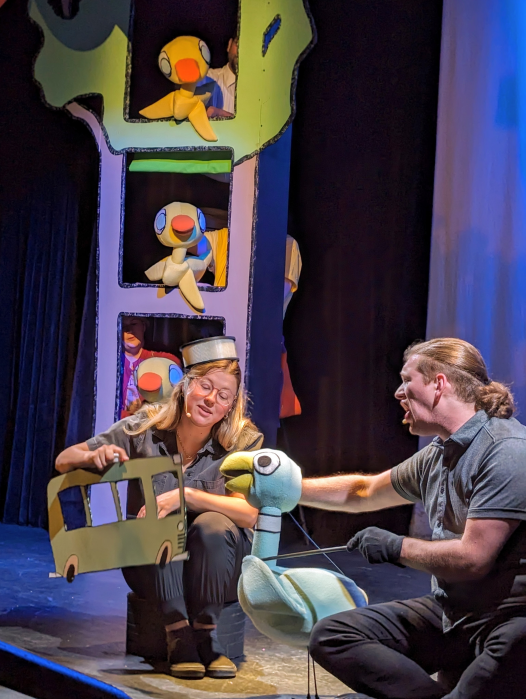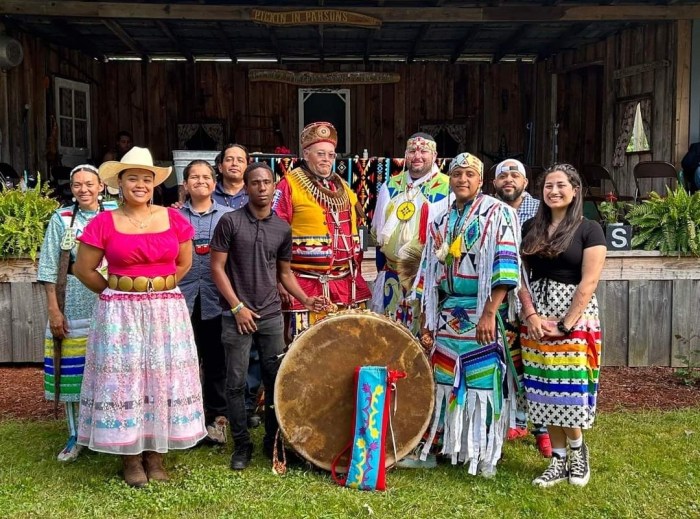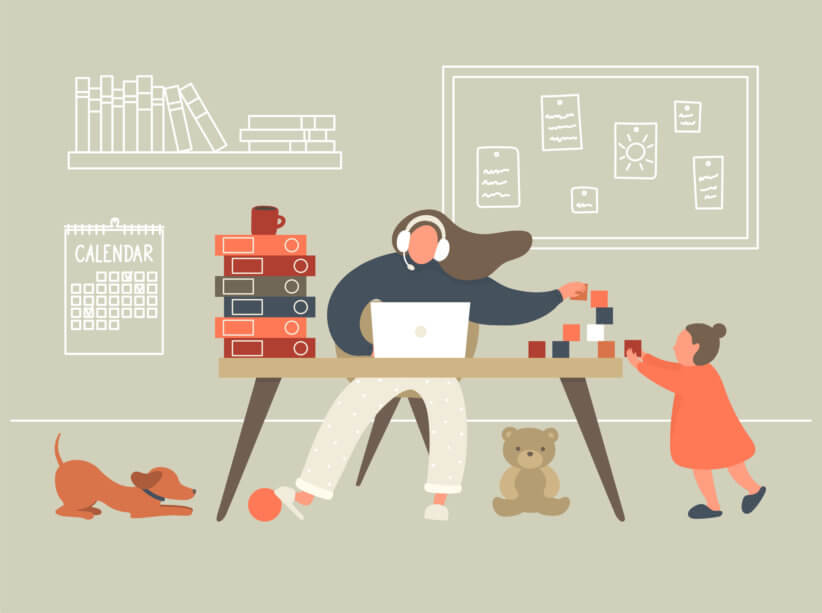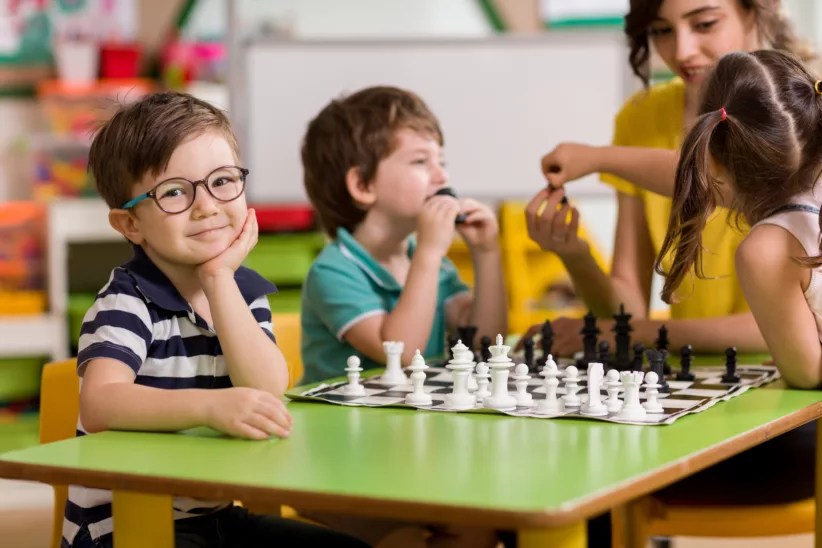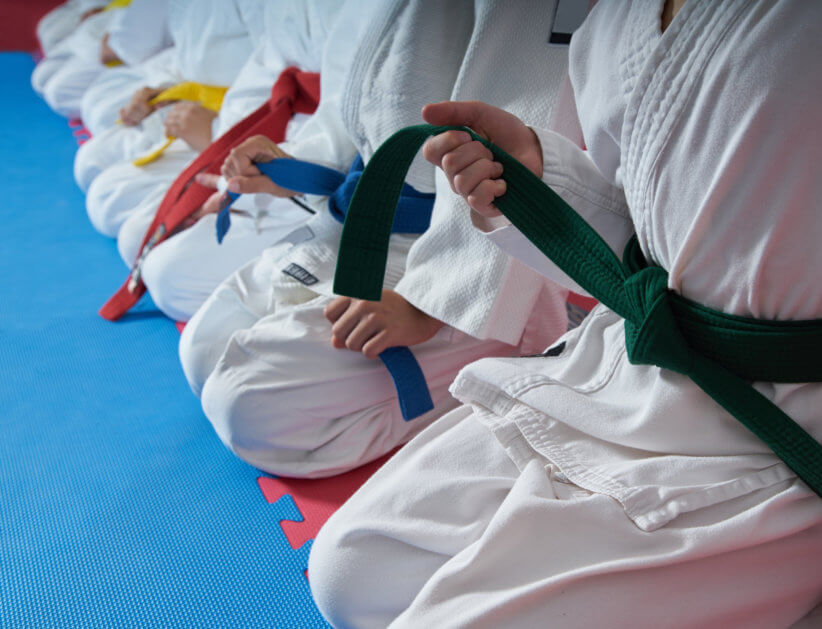
It’s not news to most parents that early music exposure is beneficial to young children’s intellectual and emotional development. But what are the best ways to introduce children to their first instruments—and what are the best ways to keep it fun while reinforcing practice?
Sharing the joys of song can be as simple as sharing music that you enjoy yourself or taking children to some of the many family concerts around the city. Julie Rulyak Steinberg, the executive director at Turtle Bay Music School, notes how important curiosity and enjoyment is as a precursor to musical expression. “Make up stories while they’re listening to music; ask open-ended questions that get kids thinking about music as a vehicle for storytelling,” she says. Singing along, creating call and response games, or even (lightly) pounding random notes on the piano are all ways to make music fun at home.
When your child is ready for formal lessons, they’ll usually let you know (though group lessons are great for gentle exploration). Many instructors agree that it’s best to let your child take the lead in selecting their first instrument. It’s all about self-motivation. “If you love your instrument, you’re going to stick with it, even when it gets tough,” says Kathy Yiannoudes, the Diller-Quaile School of Music instrumental and vocal director. Bring your child to a music store to experiment with the instruments and let them pick their favorite—or go to many of the city’s music venues (like the ones featured in this story) where instructors and directors host open house events for the same purpose.
Once a child begins formal one-on-one lessons, finding the right teacher is key. “Knowing your child is very important,” says Yana Stotland, the director of 92Y’s School of Music. “Some kids do really well under pressure or with strong support.” She likens thinking about musical learning styles to general homework approach, further extending the analogy to the homework strategy of breaking down the work into sections—three five-minute sessions of practice is less overwhelming than one big 15-minute practice without breaks.
Not surprisingly, setting a regular practice schedule can be one of the biggest challenges for parents of budding musicians. Especially for younger kids, instructors caution against taking the fun out of music, but they do recommend practicing daily no matter the length of practice. “How one learns to play an instrument is through training muscles or learning particular motions, so that the muscles are reminded of what they need to do,” says Scott Taylor, the Young People’s Division manager at Kaufman Music Center’s Lucy Moses School.
Practicing at generally the same time of day also helps make practice part of your daily routine, rather than an additional chore. Riverside Music Studios founder Dr. Dimitry Alexeev adds: “Setting up a reward system is also a good idea. It could be anything—a little sticker or going to the park at the end of the week.”
That said, when it’s time to get more serious after the first few years, it goes beyond the fun and games. “There will be periods where the material is difficult and it’s climbing the mountain a bit,” Stotland points out. “Sometimes a little extra push from the parents is what the child needs.” At this stage, Steinberg goes back to the strength of self-motivation and recommends that students be a part of the goal-setting process. She’s also seen peer motivation play a big role—when a student sees their peers play in a recital, for example, they’ll want to build their skills to do the same.
Piano
The piano is commonly thought of as one of the easier musical instruments to start very young children on. Alexeev notes the piano’s visual and visceral appeal: “You just press the key down and you hear the sound.” While some programs in the city insist on music theory at age 5 before actual piano playing, Alexeev teaches students as young as 3. At this age, children will be concurrently learning how to read music as they learn to actually play.
But instead of traditional sheet music, Alexeev prefers using lesson books with the Thompson method, which integrates bright pictures with big notes on sheet music. Young children, he says, connect more easily with the stories that are told through these pictures. Once they learn to read the notes, beginning students are able to master simple pieces relatively quickly. Getting to the next level becomes more challenging. “It requires a lot of concentration and focus to read music for the right and the left hands,” Alexeev explains.

Violin
While the smaller sizes of violins are available for younger students, Lucy Moses School’s Taylor suggests beginning formal lessons at age 5. “Usually by this age, children have the coordination they need to begin playing violin—and also the ability to focus.” That’s where classroom experience, even if it’s just at the preschool level, can help with holding an attention span for a half hour, the minimum for many lessons. (For younger ages, parents can consider the Suzuki method, which mixes group and individual lessons alongside heavy parental involvement and is taught for other instruments as well.)
Common challenges for violin beginners include learning how to hold the violin up and how to use the bow. This can be frustrating for students because they won’t actually be able to start playing the instrument until they have mastered the “set up.” Again, it’s important to celebrate the progress here rather than focus on whether or not they’ve begun to play. That said, Taylor says he doesn’t wait long to get students bowing on the strings, because he doesn’t want them to lose interest. The next hurdle is getting students to play in tune, coordinating moving their fingers along the violin while maintaining proper form.
Guitar
Mike Cioffero, a guitar instructor at 92Y, has taught students as young as age 3 but strongly recommends waiting at least until kindergarten. “8 or 9 is a better age,” he says. “By that time they’ve had more school experience and they’re more physically ready to play the chords and put their arms around [the instrument] comfortably.” Half-sized and three quarter-sized models are certainly available for younger students (for 5-7 and 8-9 respectively), but you wouldn’t want a budding musician to lose interest because the instrument is too uncomfortable to manipulate.
Woodwind Instruments
Diller-Quaile’s Kathy Yiannoudes recommends 8-10 as the earliest starting age range for the flute or clarinet. “It has to do with physical development and readiness for a one-on-one lesson,” she says, noting that students need to be able to sit and participate for at least 30 minutes. Exceptions can certainly be made for younger students, thanks to smaller clarinets and curved-head joints for flutes (that are more manageable for kids as young as 6), but in these cases, it’s even more vital to select an experienced instructor.
Drums
Like the piano, the drums are one of the most popular instruments for tots because of their accessibility. Gratification is immediate, which is important for keeping young learners engaged. “You make a rapid movement and you get a sound…I think that’s very exciting for kids,” says Nick Birmelin, a percussions instructor at Turtle Bay Music School.
“For that really young age group, you want to make it so that they’re having a pleasurable experience with music—you can attach it to storytelling or singing or combining it with some kind of game,” he says. With students as young as 3, he focuses on teaching rhythm by having children dance and play along with simple percussion instruments as he plays guitar, guiding them through specific patterns to clap along with.
As older students start private lessons around 7 or 8, they begin to learn how to properly hold drums sticks and how to make a basic rock beat. After incorporating techniques like basic note reading and posture corrections, Birmelin makes sure to dedicate some time playing together with his students, both for the joy of jamming and for learning that music is often a group effort.
For where to learn music in NYC, click here.











